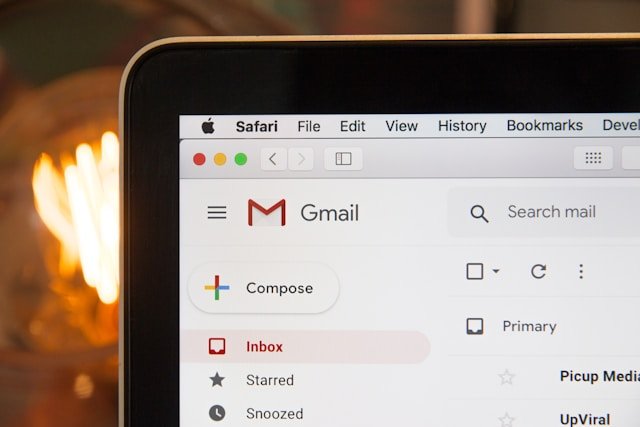Unlocking Email Marketing Automation: Your Definitive Guide

1. Introduction to Email Marketing Automation
In today’s fast-paced digital landscape, where consumer attention is a precious commodity, email marketing automation has emerged as a game-changer for businesses seeking to engage their audience effectively. Email marketing automation involves the use of software tools to send targeted messages to contacts based on predefined triggers or actions. This approach streamlines marketing efforts, saves time, and enhances the overall effectiveness of campaigns. Understanding the evolution and importance of email marketing automation is crucial for businesses looking to stay competitive and maximize their marketing ROI.
2. Getting Started with Email Marketing Automation
Selecting the right email marketing automation platform is the first step towards implementing a successful automation strategy. Consider factors such as features, ease of use, scalability, and pricing when evaluating different platforms. Once you’ve chosen a platform, familiarize yourself with basic automation terminology, including triggers, workflows, and segmentation. Setting clear goals and objectives for your automation strategy will guide your efforts and ensure alignment with your broader marketing objectives.
- Researching and Selecting the Right Email Marketing Automation Platform
- Understanding Basic Automation Terminology
- Setting Goals and Objectives for Your Automation Strategy
3. Building Your Email List and Segmentation Strategy
Building and maintaining a quality email list is essential for successful email marketing automation. Focus on growing your list organically through website sign-up forms, social media campaigns, and other lead generation tactics. Once you have a sizable list, segment your audience based on demographics, behavior, and preferences to deliver more targeted and relevant messages. Utilize segmentation tools and techniques provided by your email marketing platform to create dynamic segments that reflect the diversity of your audience.
- Strategies for Growing Your Email List Organically
- Importance of Audience Segmentation for Targeted Messaging
- Tools and Techniques for Segmenting Your Email List Effectively
4. Designing Effective Automated Email Campaigns
Crafting compelling email content is key to engaging your audience and driving action. Pay attention to elements such as subject lines, email copy, and calls-to-action to maximize open and click-through rates. Use A/B testing to experiment with different subject lines, messaging, and design elements to identify what resonates best with your audience. Personalization is also critical for enhancing engagement—address recipients by name and tailor content to their interests and past interactions with your brand.
- Crafting Compelling Subject Lines and Email Content
- Best Practices for Email Design and Layout
- Personalization Techniques to Enhance Engagement
5. Implementing Automated Workflows
Mapping out the customer journey is essential for identifying key touchpoints where automated emails can be triggered. Create automated workflows for various stages of the customer lifecycle, including welcome emails, abandoned cart reminders, and post-purchase follow-ups. Integrate your email automation with other marketing channels, such as social media and your website, to create cohesive and seamless customer experiences. Regularly review and optimize your workflows to ensure they remain effective and aligned with your marketing objectives.
- Mapping Out the Customer Journey and Identifying Key Touchpoints
- Creating Automated Workflows for Various Stages of the Customer Lifecycle
- Integrating Email Automation with Other Marketing Channels
6. Measuring and Analyzing Performance
Measuring the performance of your email marketing automation efforts is crucial for optimizing results and driving continuous improvement. Track key metrics such as open rates, click-through rates, conversion rates, and revenue generated from email campaigns. Use A/B testing to experiment with different variables and identify areas for improvement. Leverage analytics and reporting tools provided by your email marketing platform to gain insights into subscriber behavior and preferences, allowing you to refine your automation strategy accordingly.
- Key Metrics to Track for Email Marketing Automation
- Using A/B Testing to Optimize Email Performance
- Leveraging Analytics to Refine Your Automation Strategy
7. Advanced Strategies and Tips
As you become more comfortable with email marketing automation, explore advanced strategies and techniques to further enhance your results. Experiment with dynamic content and advanced personalization techniques to deliver highly targeted and relevant messages to your audience. Explore behavior-based triggers and event-driven automation to deliver timely and contextually relevant communications based on user actions and interactions. Continuously refine and optimize your automation strategy to stay ahead of the curve and drive long-term success.
- Dynamic Content and Advanced Personalization Techniques
- Behavior-Based Triggers and Event-Driven Automation
- Scaling and Optimizing Your Automation Strategy for Long-Term Success
Conclusion
Email marketing automation has revolutionized the way businesses engage with their audience, allowing for more personalized, timely, and relevant communication. By following the comprehensive guide outlined above, marketers can unlock the full potential of email automation and achieve their marketing objectives with precision and efficiency. Embrace automation as a cornerstone of your marketing strategy, and watch as your campaigns soar to new heights of success.

